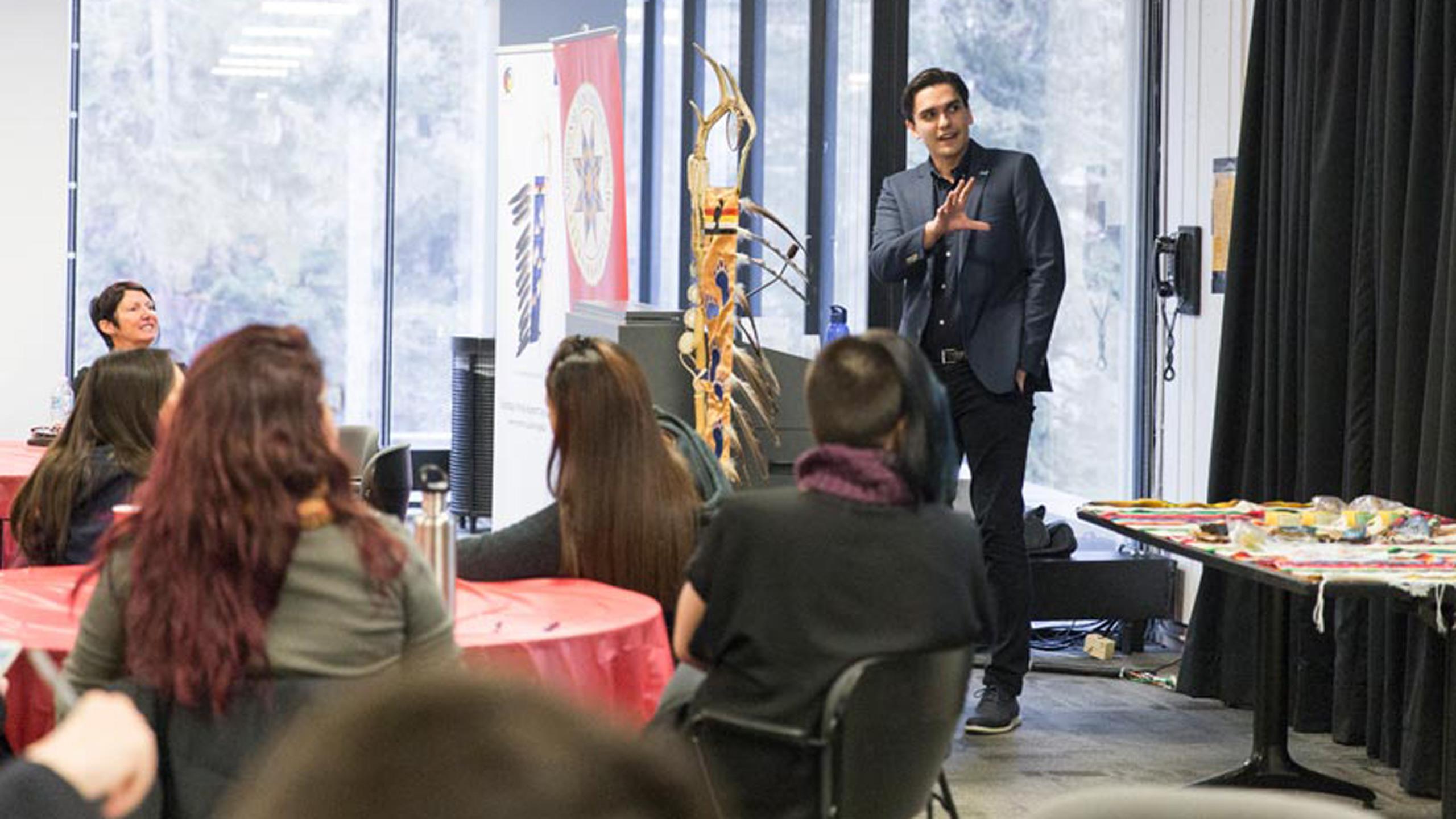By Émeraude Mbuku
The Ryerson Aboriginal Centre, located on the upper side of Kerr Hall West, is where communications and culture PhD candidate Riley Kucheran reconnected with his Indigenous roots. Kucheran, who identifies as Biigtigong Nishnaabeg from the Pic River First Nation, was hired by the School of Fashion to Indigenize the curriculum; he explains the process as a personal one.
“It’s kind of changed my life in a way because I never really engaged with my culture growing up,” he said. “The first thing I wanted to do [when I got here] was reach out to the community because I didn’t want to be the sole voice, I didn’t want to speak for other people.”
Kucheran, like most people of colour, found the process of self-acceptance is difficult for a variety of reasons, especially in social spaces resistant to change. Kucheran first spoke to the Aboriginal centre’s elder in order to develop a relationship with the Indigenous community on campus.
Kucheran’s research position at Ryerson comes just in time for Indigenous Fashion Week Toronto (IFWTO). The event, whose goal is to explore “Indigenous-made fashion, textiles and crafts,” is the first of its kind. The show will bring together 23 indigenous designers, hailing from communities across the world from Nunavut to Greenland. The show was founded by designer Sage Paul, an Indigenous designer herself who said in a press release that the aim of the show about “carving out space” for Indigenous art.
Over 50 per cent of the week’s shows are created by women, are accessible, and educational. IFWTO aims to de-commodify “Indigenous” items that devalue First Nations culture and “empower Toronto’s voiceless makers” who are not represented in Toronto’s fashion scene.
“Aboriginal students are everywhere,” Kucheran added. “I’m not teaching Indigenous fashion so that [non-Indigenous students] can become Indigenous fashion designers. I’m teaching it because it’s more human and community driven.”
Historically, Canada has had a complicated relationship with Indigenous and cultural fashion. Despite the community of makers proving that Indigenous art and fashion redefines mainstream culture, the stereotypical ideal of what a First Nations person should look like has held them back. Through Native headdress worn by summer music festivalgoers and moccasins sold by corporations, Canadian brands have long appropriated Aboriginal fashion for their own financial interests. “If you are genuinely interested in Indigenous work, collaborate so that they also benefit from it financially,” said Kucheran
Collaboration and giving credit where credit is due is something that he stresses. He asks his first year students to use social media as a tool for critical thinking. “As soon as people know why cultural appropriation is so damaging to Indigenous communities, they’re more sensitive and more critical of where things are coming from.”
Kucheran also recalled his mentor’s words: “Niche is the new normal, we need to be designing for every facet of society.”
Indigenous Fashion Week Toronto will take place from May 31 to June 3, 2018. You can find out more about Riley Kucheran and his work on Twitter.










Leave a Reply